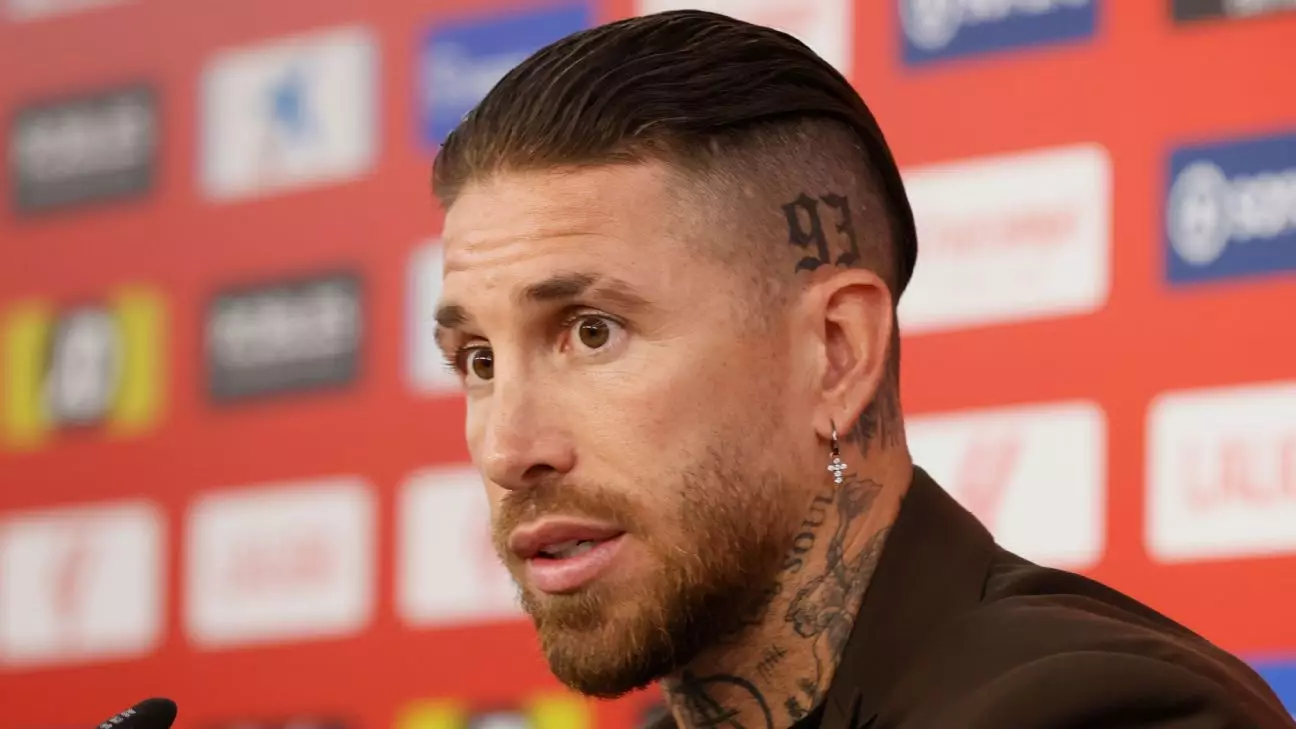The world of football often sees audacious transfer pursuits that generate both excitement and skepticism. This phenomenon is clearly illustrated in the case of SC Zamalek, the illustrious Egyptian Premier League club, as they contemplate the ambitious prospect of signing renowned defender Sergio Ramos. At 38, Ramos has become a free agent after his productive stint at Sevilla. While the mere mention of his name evokes reverence, Zamalek’s prospects are hampered by his high salary expectations and existing roster constraints.
Sergio Ramos is not just a football player; he is a living legend who has accumulated a remarkable array of titles throughout his cloud nine career. His ability to influence matches from the backline is almost unparalleled, making him a coveted signing for clubs across the globe. Known for his leadership skills and resilience, Ramos has played pivotal roles in monumental wins for both his club and country, including World Cup and Champions League victories. Should Zamalek successfully secure his signature, it would not only elevate their squad but also enhance the prestige of the Egyptian Premier League on an international stage.
Club officials, including media coordinator Ahmed Shawky, have confirmed that Zamalek have expressed interest in Ramos, and the excitement amongst fans is palpable. The potential signing is a talking point that resonates deeply with the fan base, serving as a beacon of hope that the club could attract international talent. This sentiment is often underscored by reports of Ramos welcoming interest from Zamalek, suggesting a mutual interest. However, enthusiasm must be tempered with realism as the challenges mount.
The prospect of signing Ramos stirs excitement, yet several obstacles hinder Zamalek’s pursuit. The most significant barrier is undoubtedly the financial component. Hani Shoukry, a member of the Zamalek board, openly acknowledged that Ramos’s salary demands pose a considerable roadblock. Moreover, the Egyptian club’s recent signings in the center-back position add another layer of complexity to this situation. This suggests that while Zamalek aims to build a competitive squad, their focus must remain on balancing financial sustainability and squad depth.
It is important to analyze the implications of targeting an aging superstar in a league that has traditionally seen younger players emerge from Africa. In recent years, notable transfers to Egyptian football have been scarce, with exceptions being players who leveraged their waning careers in Europe to finish in lower-tier leagues. Zamalek’s pursuit of Ramos not only underscores their ambition to secure star power but also highlights a broader goal of elevating the reputation of the Egyptian league.
Beyond on-pitch performance, the off-field implications of acquiring a player like Ramos cannot be understated. His presence would undoubtedly stimulate commercial interest, attracting sponsorships and merchandising opportunities. This adds an enticing dimension to the narrative, as major clubs often drive initiatives that boost their financial prowess through star signings. Zamalek officials have rightly considered these marketing advantages as they navigate negotiations.
Nevertheless, Shoukry’s candid remarks about the stark financial realities illustrate the precarious balancing act that clubs in developing leagues must perform. While the excitement surrounding the prospective signing of Ramos is evident, Zamalek must exercise prudence to avoid setting a precedent that could further exacerbate financial mismatches in the league.
The conversation surrounding Sergio Ramos’s potential move to Zamalek draws attention to the broader dynamics of football connections across continents. Although Zamalek’s pursuit reflects a commendable ambition and a desire to uplift Egyptian football, the barriers posed by salary demands and existing squad depth reveal a more complex narrative. The influx of established players into leagues traditionally dominated by emerging talents remains a polarizing topic, one that continues to evoke both hope and trepidation.
Ultimately, the situation encapsulates the dual nature of football: the allure of high-profile players reshaping smaller leagues and the financial responsibility that comes with such aspirations. As Zamalek navigates these waters, it must remain committed to its dual mission of achieving sporting success while maintaining a sustainable business model—a challenge that is as exhilarating as it is daunting.


Leave a Reply